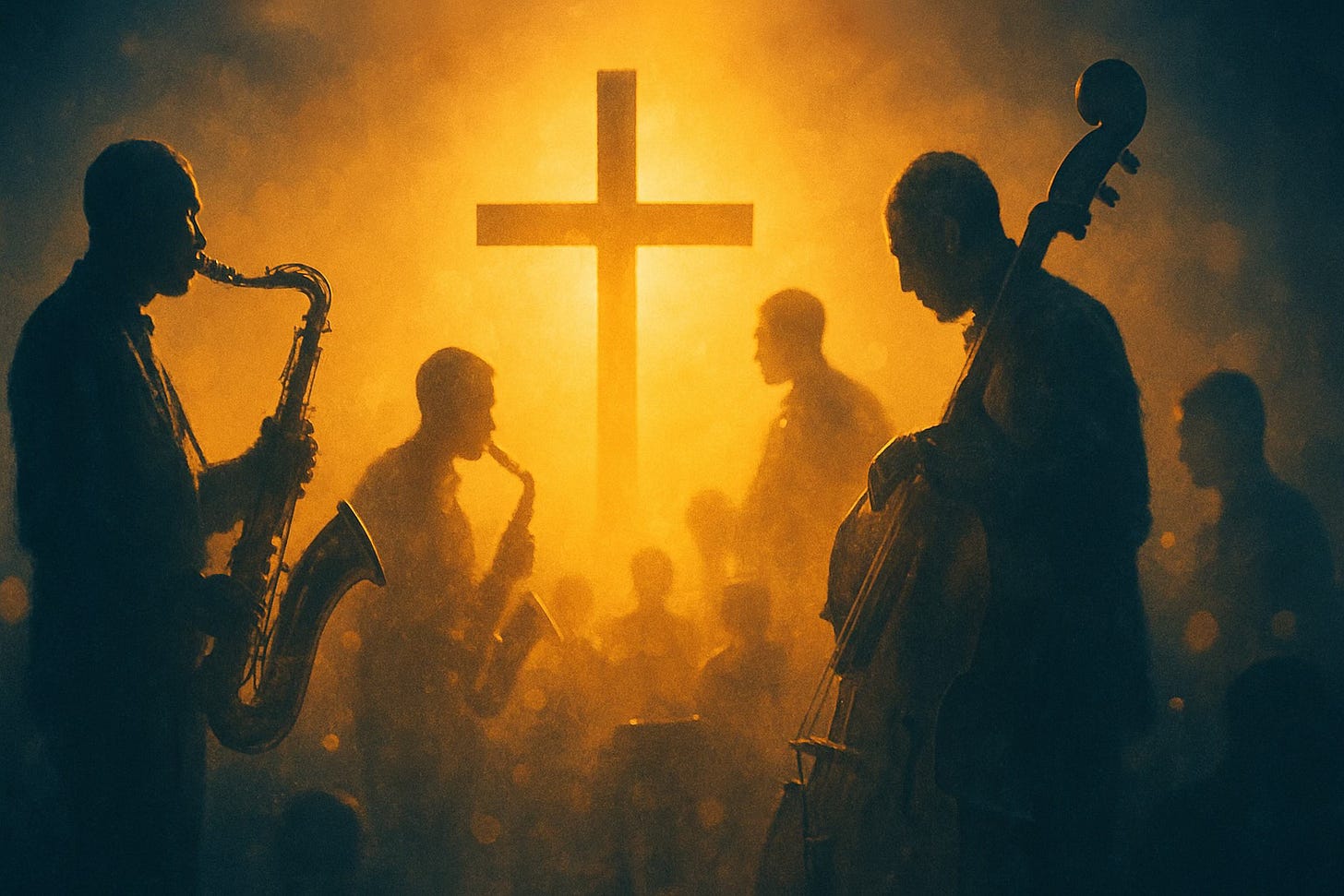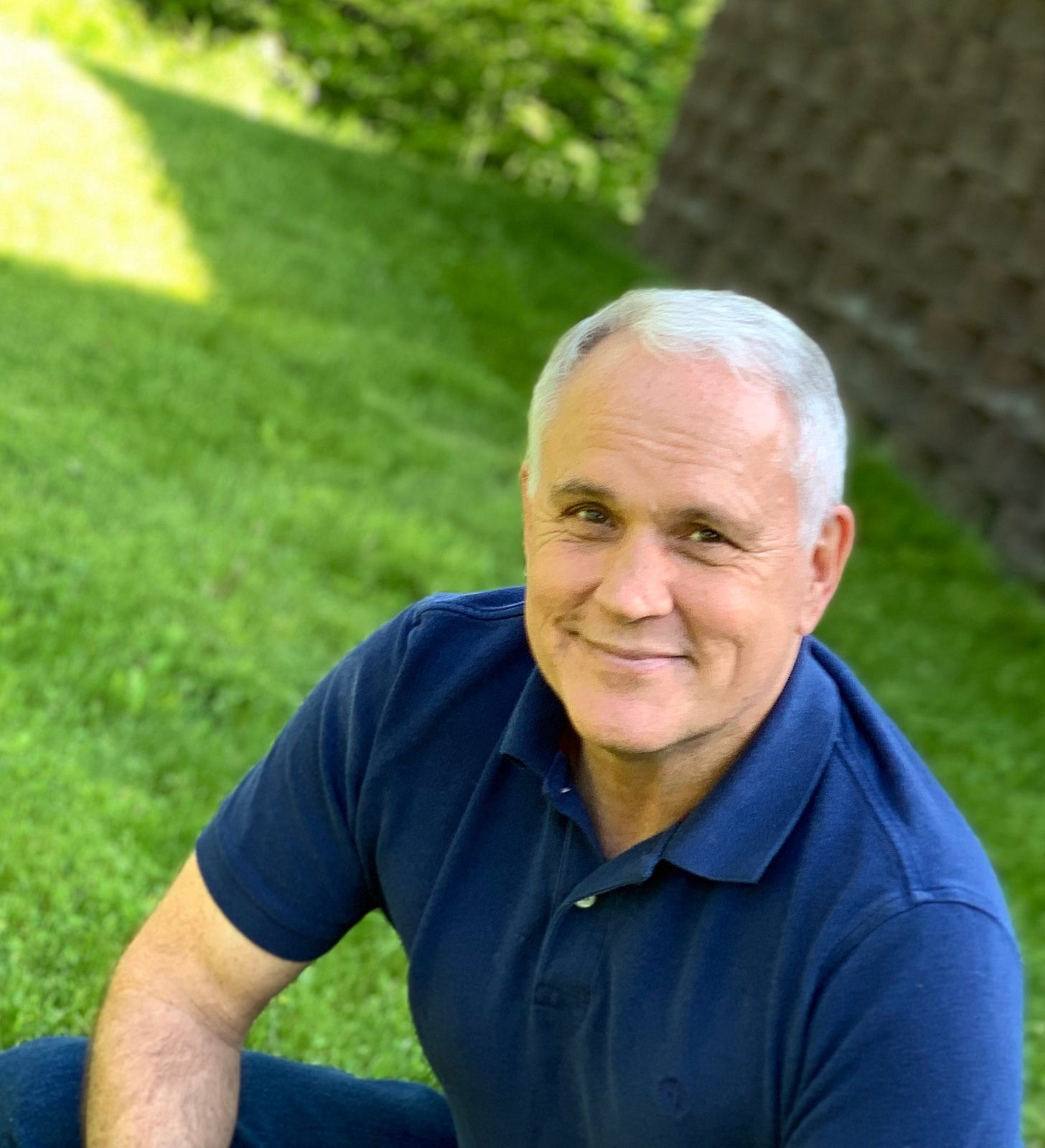Common Life Politics
A Substack by Craig Geevarghese-Uffman
featuring the ongoing series
Jazz, Shame, and Being With
At the Heart of This Work
Common Life Politics asks one simple question:
How can theology help us live beautifully together?
Every other Friday, I publish a long-form letter in the ongoing series Jazz, Shame, and Being With—a project exploring how divine love takes shape in our common life through mutual presence rather than domination.
“Jazz” names the art of disciplined interdependence.
“Shame” names the wound that makes us withdraw from love.
“Being With” names the incarnate way of God’s healing companionship.
These letters are not protests but practices—rehearsals in the key of grace, composed for readers who want theology that listens as it speaks.
The Shape of the Practice
Incarnational Presence — Samuel Wells
God’s story is one of dwelling, not fixing. Each letter stays near what most of us would flee.
Truthful Friendship — Stanley Hauerwas & Kavin Rowe
Truth is told best between friends patient enough to argue and stay.
Participatory Freedom — Douglas Campbell
Freedom means love without control—the Spirit’s invitation to communion rather than competition.
Common Life Politics — Luke Bretherton
Theology is public work: cultivating deliberation, hope, and moral imagination amid plural worlds.
Radiant Beauty — David Bentley Hart
The gospel persuades not by outrage but by splendor. Every sentence should hum with that music.
Pastoral Accompaniment — James Howell
Theology ought to bless before it critiques, comforting as it clarifies.
Embodied Communion — Willie Jennings
The work is not merely conceptual—it is sonic, tactile, and communal. Theology must dance, breathe, and groove.
Honest Grace — Anne Lamott
Self-deprecating humor is sometimes the truest form of confession. Grace laughs last.
Interpretive Charity — Donald Davidson
Understanding is improvisation across vocabularies—truth discovered mid-conversation.
Democratic Friendship — Jeffrey Stout
Public reasoning is love with a civic accent; each essay is a small democratic act of faithful speech.
Freedom as Non-Domination — Philip Pettit
Love and freedom flourish where arbitrary power dies. These pages model freedom’s gentler grammar.
Theological Imagination — Craig Geevarghese-Uffman
To think incarnationally is to improvise communion—to let God’s nearness set the tempo of thought and tone alike.
What You’ll Find Here
Friday Essays: Jazz, Shame, and Being With
Long-form meditations interlacing theology, psychology, and public life.
Each essay is a biweekly rehearsal of theological jazz—naming wounds, tracing hope, and practicing the art of presence.
Lexicon of Common Life
A living theological vocabulary built from these essays, offering language for love, freedom, trust, and repair.
Notes and Conversations
Short Substack Notes through the week: quick riffs, quotes, and shared improvisations that sustain the friendship between essays.
My Vocation
I am an Episcopal priest and theologian shaped by the Duke School of ecclesial ethics, the Princeton tradition of democratic faith, and doctoral formation at Durham University (England)—one of the world’s leading centres for Theology and Religion, renowned for integrating rigorous scholarship with lived ecclesial practice.
Before ordination, I served as a naval officer and business executive; those worlds taught me the logics of control. Theology, and especially Durham’s incarnational ethos, taught me the joy of relinquishment.
Now, through Common Life Politics, I translate rigorous theology into the ordinary courage of presence—writing not to win arguments but to practice the art of Being With.
Why Subscribe
If you long for:
Theology that sings rather than shouts
Faith that forms character, not factions
Politics of presence instead of performance
Freedom without domination
Humor that disarms and hope that endures
then you already belong here.
Each Friday’s essay is an invitation to join the jam session of God’s love—one that makes room for your own improvisation.
A Closing Benediction
Theology is the music by which we remember who—and whose—we are.
May these essays help us find again the rhythm of grace, the courage of friendship, and the sound of common life made whole.
With affection and hope,
Craig
Subscribe to get full access to the newsletter and publication archives.




